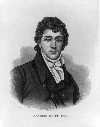Definition: (noun) A top, usually having four lettered sides, that is used to play various games of chance.
Synonyms: spinning top, whirligig, top.
Usage: The boy was thrilled to get a bright red teetotum for his birthday and spent all summer watching it spin.
Discuss
Source: The Free Dictionary
 Considered the birthplace of the People’s Liberation Army, the city of Nanchang in the Jiangxi Province of southeastern China was the site of the first revolutionary activities of the Chinese Communist Party in 1927. During the uprising, a force of 30,000 Communist troops rose against the Kuomintang government and briefly established the first soviet republic in China. However, the government soon retook the city, and it became the regular Nationalist capital in 1928. Who led the uprising?
Considered the birthplace of the People’s Liberation Army, the city of Nanchang in the Jiangxi Province of southeastern China was the site of the first revolutionary activities of the Chinese Communist Party in 1927. During the uprising, a force of 30,000 Communist troops rose against the Kuomintang government and briefly established the first soviet republic in China. However, the government soon retook the city, and it became the regular Nationalist capital in 1928. Who led the uprising?  The Kuwana Ishidori Matsuri, or Collect Stones Festival, commemorates the days when many stones had to be transported by cart to build a shrine. There is a procession of floats, adorned with beautiful cloth, tapestries, and lanterns, through the town of
The Kuwana Ishidori Matsuri, or Collect Stones Festival, commemorates the days when many stones had to be transported by cart to build a shrine. There is a procession of floats, adorned with beautiful cloth, tapestries, and lanterns, through the town of  After the burning of Washington, DC, by the British in the War of 1812, Key, an American lawyer, was sent to secure the release of a friend from a British ship in Chesapeake Bay. That night, while temporarily detained on a British vessel, Key witnessed the British shelling of Fort McHenry. When he saw the American flag still flying the next morning, he was inspired to write “Defense of Fort M’Henry,” a poem that was adopted as the US national anthem in 1931. To what melody was the poem set?
After the burning of Washington, DC, by the British in the War of 1812, Key, an American lawyer, was sent to secure the release of a friend from a British ship in Chesapeake Bay. That night, while temporarily detained on a British vessel, Key witnessed the British shelling of Fort McHenry. When he saw the American flag still flying the next morning, he was inspired to write “Defense of Fort M’Henry,” a poem that was adopted as the US national anthem in 1931. To what melody was the poem set?  Merman was a Tony Award winning star of film and stage. Her precise enunciation, wide vocal range, and accurate pitch garnered her much acclaim. She began singing while working as a secretary and eventually became a full time vaudeville performer. Her powerful alto voice afforded her great advantages at a time when stage singers performed without microphones. She made her theater debut in Girl Crazy (1930). According to Broadway lore, what did George Gershwin advise her never to do?
Merman was a Tony Award winning star of film and stage. Her precise enunciation, wide vocal range, and accurate pitch garnered her much acclaim. She began singing while working as a secretary and eventually became a full time vaudeville performer. Her powerful alto voice afforded her great advantages at a time when stage singers performed without microphones. She made her theater debut in Girl Crazy (1930). According to Broadway lore, what did George Gershwin advise her never to do?